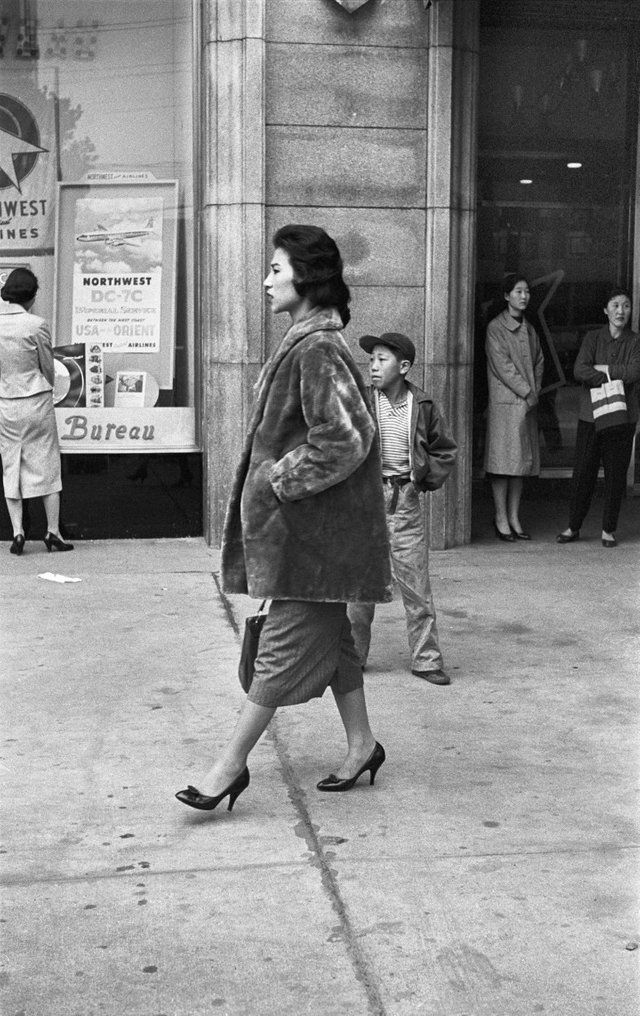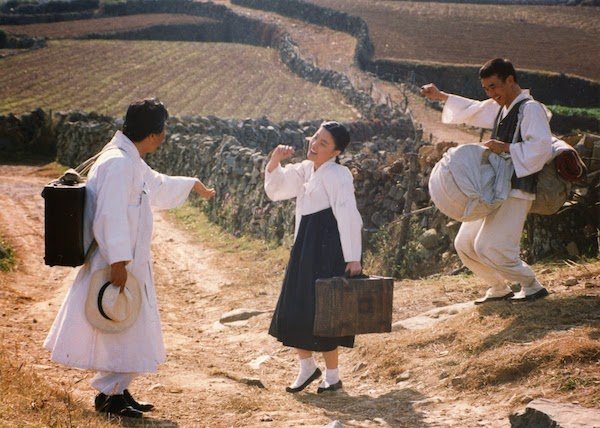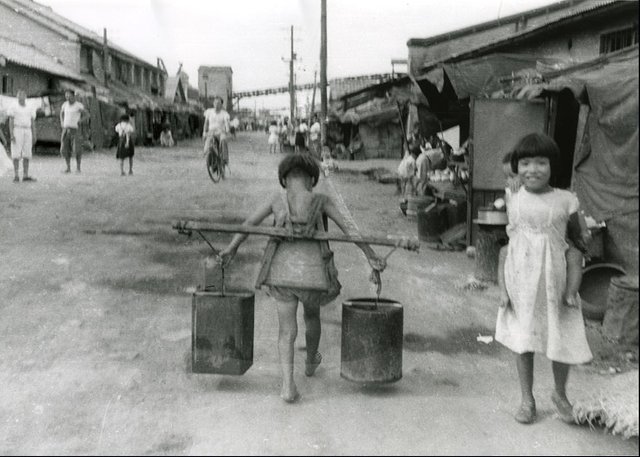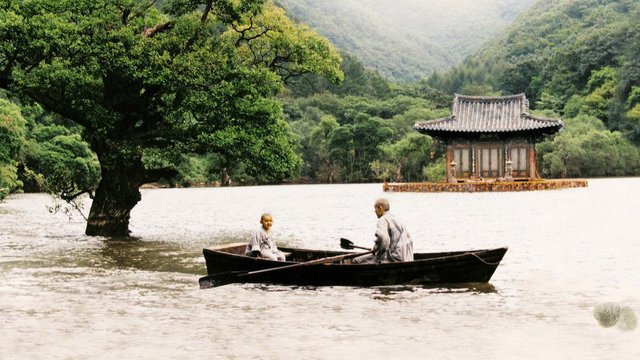Collective Silence and the Art of Forgetting
When I set out on my journey to understand generational trauma and my parents, I became very interested in what life was like for them. My father was born in 1957, 3.677 years after the armistice was signed for the Korean War, and my mother in 1961.
I didn’t know where to turn for help because there is a language barrier between my mother and I (she only speaks broken English and I only speak broken Korean) and when I asked her what life was like growing up, I was brushed off. The same thing happened when I turned to my father.
I don’t have many Korean people in my life other than family, an experience that is all too common for people who have grown up in predominantly white communities.
I do have an aunt who has been very present in my life in recent years as I’ve been on my healing journey. So I turned to her to find out more about life was like in the years following the Korean War but she didn’t seem to know much about the times my parents grew up in, saying she was born in the generation after theirs, and only recounted to me the economic boom that Korea underwent.

Han Youngsoo, “Euljiro 1-ga, Seoul, Korea” (1956–63) (© Han Youngsoo Foundation) ref: https://hyperallergic.com/366778/a-photographers-snapshots-of-a-changing-seoul-after-the-korean-war/
“I don’t remember too many hardships,” she said, “Things were good. Korea was prosperous.” But I knew this hadn’t been my parents’ experience of growing up in Korea.
So I went to pop culture.
First, I sought out Korean films, not the popular Korean dramas and cheesy movies, but the ones from the archives. There is a fantastic resource on Youtube called the Korean Film Archives that has “110 classic Korean films from the 1930s onwards available for free viewing”. These are some old and kickass art films, none of that pop bullshit. I didn’t even know Korea had a film scene back then.
For reference, some of the films I watched were:

Seopyeonje (1993 Korean film about pansori singers), ref: http://blog.lareviewofbooks.org/the-korea-blog/seopyeonje-surprise-art-house-megahit-showed-korea-forgotten-culture/
You can tell a lot about a culture through their movies. From the thematic material you can deduce what the culture found important, the politics of the time, the humor, the mood of an era, the norms, etc.
As I dove more into the history and culture of my ancestors via these old black and white films, I saw a 20th century version of Korea I had never seen before, one that had dirt roads and peasants carrying baskets wearing funny shoes.
I began to understand why my current lifestyle as a freelancer and traveler, one that is more creative and inspired rather than stable with a dependable paycheck every week would awaken a ton of fear and apprehension for my parents who had worked hard to provide an enormous amount of stability and abundance of resources.
The version of Korea I always knew was economically strong and modern with global celebrities and pop culture that the world celebrates.
It’s shiny, sparkly, pretty, modern, and clean.
And I, always having leaned heavily into the American part of my Korean-American identity and growing up in a very-white, upper-middle class town in a very white state attempted to imagine myself to be the same as my peers.
No Korean history to consider, just the version of America that’s pilgrims and apple pie.
I never had to make any decisions for fear of hunger or where I was going to sleep. I knew my existential crises were a luxury that was never afforded to my parents but that was gifted me by them.
For some reason, I thought they would understand because aren’t they occupying the same area of space and time as me?

Seoul after the Korean war, ref: https://www.trekearth.com/gallery/Asia/South_Korea/North/Seoul/Seoul/photo616492.htm
To me, the Korean War and a version of Korea that was impoverished seemed far, distant, and unreal. My parents had never discussed what it was like growing up for them. And I mean literally nothing at all. I didn’t understand why … until my cousin came to visit me a few weeks ago.
She’s only a few years younger than me and a Korea-Korean who was born and raised in Korea so I was excited to chat with her and find out more about Korea’s history and culture. When I asked, I was very surprised to find she, too, was uninterested and thoroughly bored by the topic.
“Why think about the past? People don’t like to talk about it. Korea was poor, there’s not much to say. What matters is looking forward,” she said.
This struck me particularly because my mom had said some very similar words about the past.
I considered whether this could be a possible reason nobody had talked with me about this time in Korean history … perhaps they had forgotten or wanted to forget, just like I had wanted to forget I was Korean.
And maybe people didn’t want to recount a past or a version of Korea that was a struggle for survival or one that carried heavy secrets. I don’t know if this is a cultural phenomenon or a universal one, rooted in trauma or shame or both, but it explains the response I’ve been getting.
Ramsay Liem, a professor of psychology at Boston College and a 1st-generation Korean-American whose parents immigrated to the US in the 1930’s, directed a short film documentary called Memory of the Forgotten War and had this to say in reflecting on his film about the personal stories of four survivors of the Korean War:
“Most of all, there has been a silence about the war among us, even within families. This film is an attempt to get conversations started, or at the very least to bring these stories of people’s lives to our community and the wider public” (Smith, 2014).
He was inspired to look into this “collective silence” through his familiarity with torture and abuse victims in Latin America and saw there was a common way that Korean survivors and Latin Americans dealt with their experiences by silence and forgetting (Smith, 2014).
It’s an incredible survival strategy.
The silence is such a key here that I hadn’t anticipated. Am I the last link to the past?
Our family’s past in this forgotten Korea could die with my parents …
Because I, nor my siblings, have any knowing of it. But it would continue to live on through intergenerational trauma, which is the whole reason why I am here writing this blog, doing this thing.

Spring, Summer, Winter, Fall .. and Spring, ref: https://sejongbarcelona.blogspot.com/2019/03/spring-summer-fall-winter-and-spring.html
Anyway, between me and my siblings, we couldn’t even cobble together enough conversational Korean to find out about the past through our elders because none of us speak good enough Korean to even have that sort of nuanced dialogue.
Ironically, when I was a kid, I intentionally forgot my Korean (I was fluent up until grade school, it was my first and native language and I actually went to ESL classes despite being born in Texas) because I wanted to melt and meld into American culture.
I was happy when my parents allowed me to quit going to Korean school on Saturdays and happy that they didn’t teach us Korean traditions or Korean holidays. I was happy that I could proudly claim how un-Korean I was because it seemed to prove how American I then must be.
When I first realized this in my mid-20’s, I was ashamed that I didn’t put up a fight to keep my Koreanness alive in me more. But what’s helped me to move beyond the shame has been the Feeling Asian podcast. Hosted by 2 Korean-American comedians, they bring on Asian-American guests and I’ve found that much of my experiences are actually really normal. I’ll write a post soon of some of their podcast episodes that specifically resonated with me as poignant examples of my own Asian-American experience.
Today, I watched Liem’s documentary and quickly found myself bawling, tears streaming down my face, while the survivors shared the stories of families split up and identities forgotten.
I was very surprised to find myself so readily moved, it wasn’t particularly graphic and I had been aware of these stories before, can distantly recall my parents watching a Korean TV show about the reunification of Korean families, and have been super disconnected with it.
Perhaps there are memories inside of me from generations past that are stirring and the dissociated relationship I have had with my heritage are growing more connections.
I’m not really sure how to end this post, so I’ll just wrap it up by sharing that I am setting an intention to learn Korean in the next year so I can speak with my mother.
I’m remembering my mother tongue so I can speak with my mother.
References
Smith, Sean. Keeping Memories Alive. BC News. 30 Jan. 2014. Web. 25 Sep. 2021. https://www.bc.edu/bc-web/bcnews/news-archive/2014/topstories/_ramsay-liem-documentary-on-korean-war.html